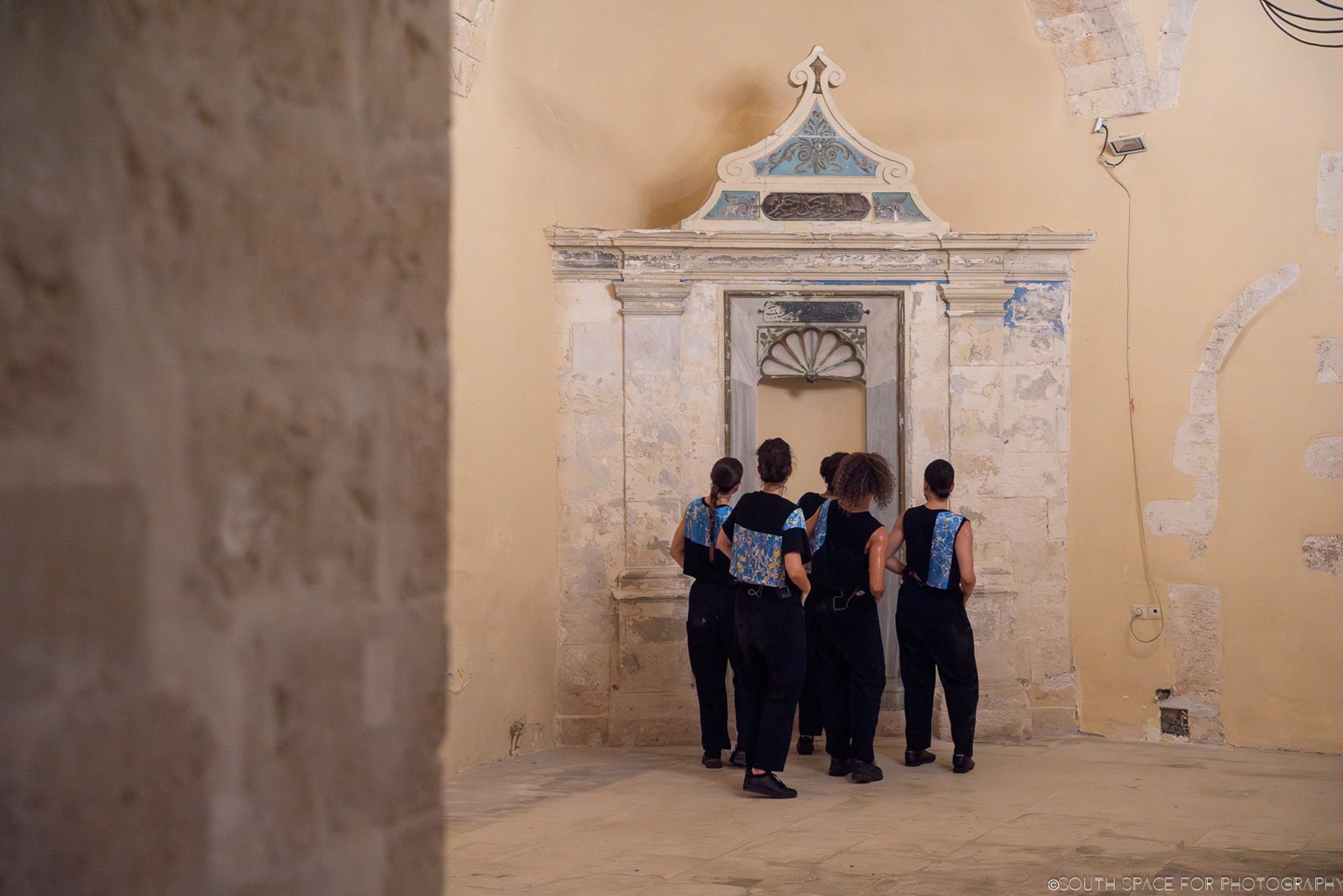
'Dünya Maskara' is a moving anthology, a bilingual turkish-greek performance inspired by 19th- century songs and funeral inscriptions from Istanbul, written in 'karamanlidika': a dialect and writing system of the turkish language using the greek alphabet, common among the orthodox population originating from Cappadocia.
Based on the linguistic proximity of the original archives, Turkish poet Çağla Meknuze and choreographer Mairi Pardalaki create new bridges between the two languages and juxtapose their feminist writing with the themes of these archives: love, death, religion and the place of women within them.
The 9 co-written new songs are interpreted by a group of performers using spoken word and movement.
The performance is assembled between Greece and Turkey, engaging the artistic community in each country.
An idea by Mairi Pardalaki
Texts Çağla Meknuze & Mairi Pardalaki
Based on publications by Matthias Kappler, Evangelia Balta, Anastasios Iordanoglou
Original music Emre Malikler
Costumes Dimitra Liakoura in collaboration with Katerina Momitsa and Atelier Tsiouni
Performers Greece-Turkey Elina Demirtzioglou, Mairi Pardalaki
Performers Greece Sevasti Zafeira, Marietta Manaroli, Katerina Gevetzi
Performers Turkey Canan Yücel Pekiçten, Aslı Bostancı, Gizem Seçkin
Voice direction Katerina Fotinaki, Anna Linardou, Çağıl Kaya
Artistic collaborator Marianthi Pantelopoulou
Additional music recording Fotini Kokkala
Transcription of byzantine music notation Nikos Papageorgiou
Participation in sketch recordings Elif Dikeç
Sutitles istos
Photo credit South Space for Photography
Duration 35'
Production Berdahi, Balkans Beyond Borders, Kinitiras Network for Performing Arts
Production manager Christina Papadaki
Grants European Festivals Fund for Emerging Artists - EFFEA, French Institute of Paris within the framework of ‘IF Export 2024', The JF Costopoulos Foundation, Teatroskop South-Eastern European Network for Performing Arts, NEON Organization for Culture and Development, ALFinMOTION - Anna Lindh Foundation Mobility Programme, i-Portunus, Be Mobile Create Together
Residencies Anis Gras - EHPAD Cousin de Méricourt-Cachan (FR), Akbank Sanat Dance Atelier-Istanbul (TR), Kinitiras Artistic Network for Performing Arts-Athens (GR), Gate 27-Ayvalik (TR), Purespace Studio-Istanbul (TR)
With the kind support of Institut Français de Turquie, Institut Français de Grèce, Istanbul Foundation for Culture & Arts (IKSV), Zografyon Lyceum-Istanbul, Kadiköy Rum Cemaati Vakfı
Thank you Badila
Thank you Çıplak Ayaklar Kumpanyası & Mimar Sinan Fine Arts University Dance Department
Performed at
Dance Days Cania (GR) / 2024
Dance Laboratory Rhodes (GR) / 2024
Istanbul Fringe (TR) / 2024
Hülya-Özdemir Nutku International Izmir Theater Festival (TR) / 2025